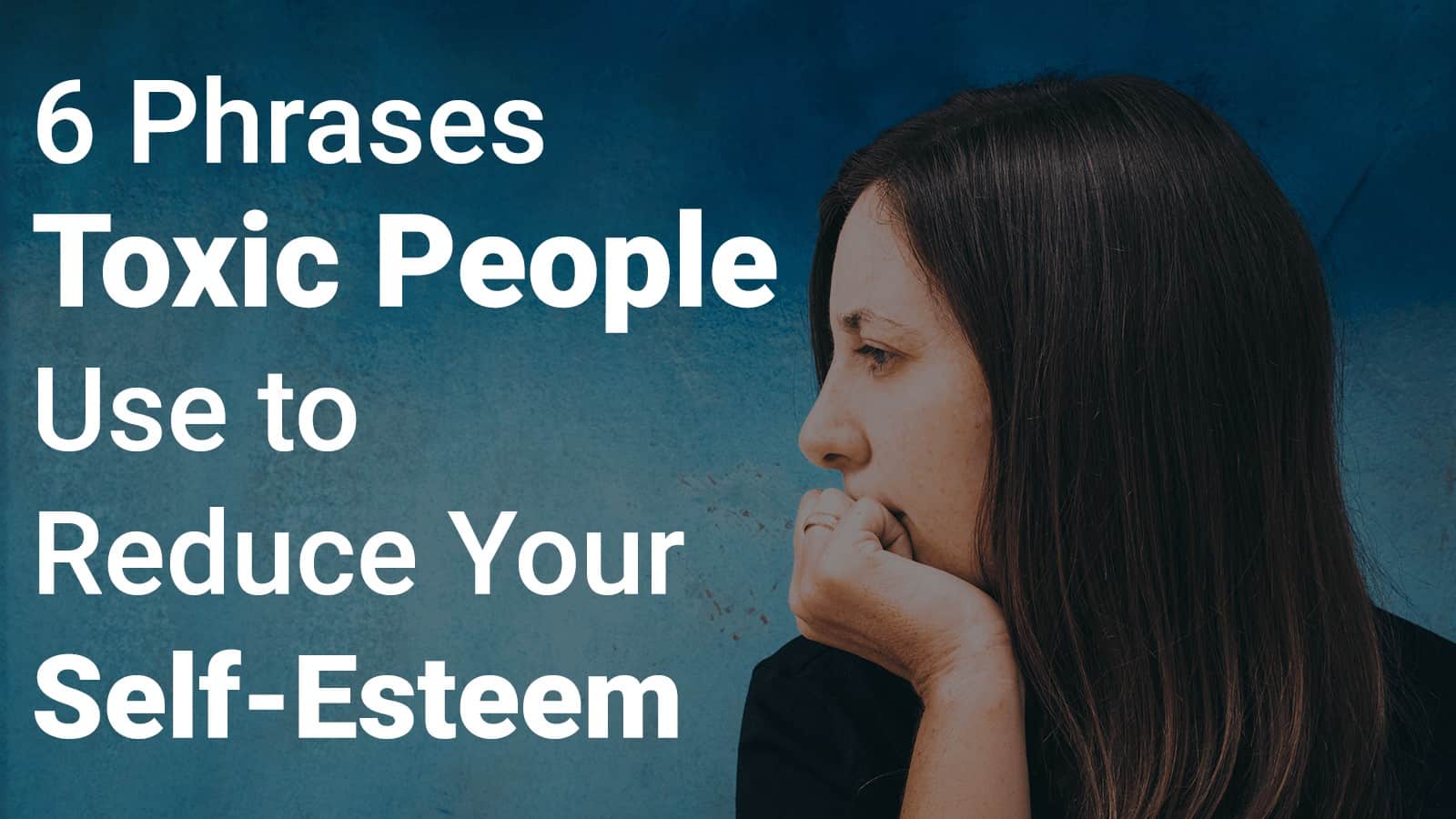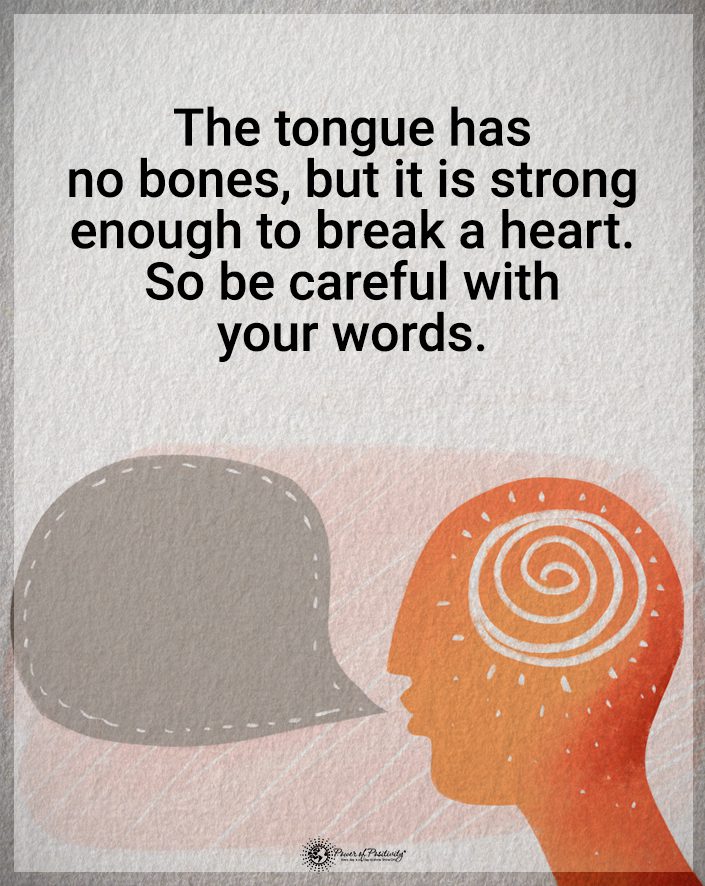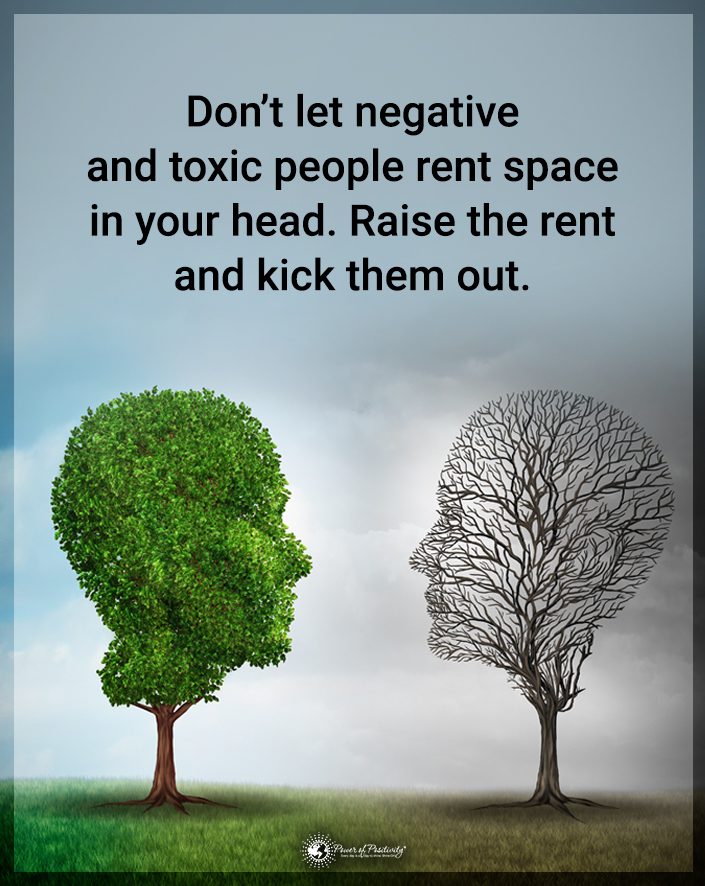In a world where words wield immense power, the language of toxic people can be a concealed weapon. Indeed, words and undermine your self-esteem and well-being. Have you ever encountered someone whose words left you feeling diminished, questioning your worth, or doubting your perceptions? If so, you’re not alone. Navigating the labyrinth of toxic communication can be challenging, but unlocking the patterns behind it is the key to reclaiming your power.
This article will uncover six phrases commonly used by toxic individuals to erode your self-esteem. By shining a light on these shadowy tactics, we aim to equip you with the knowledge and tools to protect yourself, foster healthier relationships, and cultivate a positive mindset. So, buckle up and join us on this empowering journey to unmask the language of toxicity and discover actionable strategies to rise above it!
“Whether it’s negativity, cruelty, the victim syndrome, or just plain craziness, toxic people drive your brain into a stressed-out state that should be avoided at all costs.” ~ Travis Bradberry, Ph.D., Author of Emotional Intelligence 2.0
Key Traits of Toxic People
Here are some of the most common traits of toxic individuals:
- Toxic people are manipulative
- They’re judgmental
- They take no responsibility for their feelings
- They don’t apologize
- They’re inconsistent
- They make you prove yourself to them
- They make you defend yourself
Between the manipulation and judging, some toxic folk love to spew their vile words about seemingly anyone. Predictably, many of these words are intended to hurt someone else – possibly even you.
Toxic people are notorious for projecting their insecurities and low self-esteem onto others. If you know of a toxic person, you must understand that nothing they say should be taken personally. In reality, toxic people are miserable and – for some elusive reason – use others in a vain attempt to make themselves feel better.
While a toxic individual can (and sometimes does) contaminate the environment without words, they do have a few common phrases among them.
The Language Toxic People Use to Manipulate You
Here are six things toxic people often say:
1. “You’re just being dramatic.”
Here, the toxic person is coaxing someone into believing they’re at fault for the current predicament. The damage to self-esteem isn’t necessarily in being labeled a drama queen (although it could be perceived as such). But the behind-the-scenes manipulation that’s taking place. The chances are that the toxic one has done something to hurt the other intentionally – and with seemingly little regret. Such statements may send a person reeling, especially someone who is in a delicate state.
So when someone accuses you of being dramatic, they attempt to invalidate your feelings and experiences. This tactic is a form of gaslighting, where the toxic individual tries to make you question your reality and doubt yourself. It’s essential to recognize this behavior and trust your feelings. To counteract this, maintain your boundaries, seek support from trusted friends or family, and consider distancing yourself from the person exhibiting toxic behavior.
2. “You don’t know what you’re talking about.”
Nobody likes to be told that what they have to say is invalid. Phrases like “You don’t know what you’re talking about” give off a vibe of intellectual superiority that most of us find reprehensible. These words can be hurtful and embarrassing.
More than likely, the toxic person saying these words is trying to slither their way out of some trouble. And as this example shows, they’re shameless in how they go about doing so.
This phrase directly attacks your intelligence and knowledge. It belittles you and makes you feel inferior. When faced with such comments, remind yourself of your worth and don’t let someone else’s opinion define you. It’s helpful to stay informed and confident in your knowledge and to assert yourself when confronted with such negativity calmly. Surrounding yourself with positive influences can also help reinforce your self-esteem.
3. “It’s all of your fault.”
Well, it’s probably not your fault at all – whatever it is. But to play devil’s advocate, let’s say – on this occasion – that ‘it’ happens to be “your fault.” What does this mean? Put: In the view of someone toxic, any “affront” is fair game to use as ammunition.
Maybe you did the thing at the time at the place – and now they use your (often innocent) mistake to justify their (often far worse) behavior. In the end, this manipulation rings hollow – but not before someone usually gets hurt.
Blame-shifting is a common tactic used by toxic individuals to avoid responsibility for their actions. When someone tries to pin the blame on you, evaluating the situation objectively is crucial. You may acknowledge any mistakes. However, you should not take on undue responsibility. Practice assertive communication, and don’t be afraid to stand up for yourself. Everyone makes mistakes, but it’s unhealthy to bear the burden of someone else’s faults.
4. “You’re just being insecure.”
(The blame game continued.) An honorable person doesn’t feed off of someone’s fear and anxiety. But then again, a toxic person isn’t honorable. Besides demonstrating a clear breach of respect, plenty of irony can be found in these four words. They’ll never admit it, but they are the insecure ones.
Accusing someone of insecurity is a way for toxic people to exploit your vulnerabilities. Recognize this as projecting their insecurities, not a reflection of their worth. Focus on building your self-esteem through positive affirmations, self-care, and surrounding yourself with supportive people. Don’t let someone else’s negativity dictate your self-worth; embrace your strengths and work on areas you wish to improve.
In short: they’re projecting, and they may not know any other means of expressing their perceived inadequacies. However, this doesn’t excuse the outright disregard for someone else’s self-esteem.
5. “I don’t want to be in a friendship/relationship with someone who _____.”
These words are meant to be used as a threat or an ultimatum. Either way, a real friend or partner doesn’t say such nonsense. A real friend or partner doesn’t utter these words with no genuine sincerity. Nonetheless, that is exactly what is happening; the toxic person doesn’t care about your behavior; they care about getting something out of you. Indeed, they are projecting their shortcomings onto you. It goes without saying that no one should subject themselves to this type of treatment.
This manipulative statement aims to control your behavior by playing on your fears of abandonment. Recognize this as a red flag and evaluate whether the relationship is healthy and mutually beneficial. True friends and partners accept and support each other without issuing ultimatums. Prioritize your well-being and don’t compromise your values to appease someone else.
6. “You are (enter insulting word here.)”
It comes as no surprise that toxic people tend to have a narcissistic streak. When passive-aggressiveness (or other manipulative techniques) fail, they sometimes use old-fashioned verbal abuse. Usually, this occurs out of a sense of desperation, and the ugliness that is their natural disposition fully reveals itself.
“You are stupid,” “You are worthless,” and “You are a loser” are three choice phrases of toxic people. If you should ever find yourself on the receiving end of these hurtful words, you can take solace in knowing that it has nothing to do with you. As mentioned earlier, the toxic person uses you as a sounding board for what’s happening inside their head.
Verbal abuse is never acceptable, and standing up against it is essential. When someone resorts to name-calling, it reflects their character, not yours. Maintain your self-respect, establish boundaries, and consider seeking help if the abuse continues. Surround yourself with positive influences, practice self-love, and remember you deserve respect and kindness.
Ignore them. Walk away. Repeat. Do these three things enough, and you’ll almost certainly be rid of them.
Final Thoughts on Identifying the Language of Toxic People
Identifying the language of toxic people is a crucial step toward protecting your mental and emotional well-being. The phrases toxic individuals use are often laced with manipulation, blame, and a disregard for your feelings and self-worth. Recognizing these harmful patterns enables you to establish boundaries, seek support, and make informed decisions about the relationships you maintain.
It’s important to remember that the language and behavior of toxic people are reflections of their insecurities and shortcomings, not yours. Their attempts to belittle, control, or manipulate are often rooted in their internal struggles. While it can be challenging, try not to internalize their negativity. Instead, focus on cultivating self-love, resilience, and a strong support network.
Empower yourself with knowledge and awareness. Learn to distinguish between constructive criticism and malicious intent. Stand firm in your values, and don’t be afraid to assert yourself when faced with toxicity. Surround yourself with positive influences who uplift and encourage you, fostering an environment where mutual respect and kindness prevail.
You should also seek professional guidance if you are in a persistently toxic relationship. Therapists and counselors can provide valuable insights, coping strategies, and support to help you navigate challenging situations and rebuild your self-esteem.
Ultimately, you have the right to be treated with respect and dignity. By identifying the language of toxic people and taking proactive steps to protect yourself, you can foster healthier relationships and cultivate a more positive and fulfilling life. Remember, the opinions of others do not determine your worth but by your self-perception and the positive impact you make in the world.
















 Community
Community

